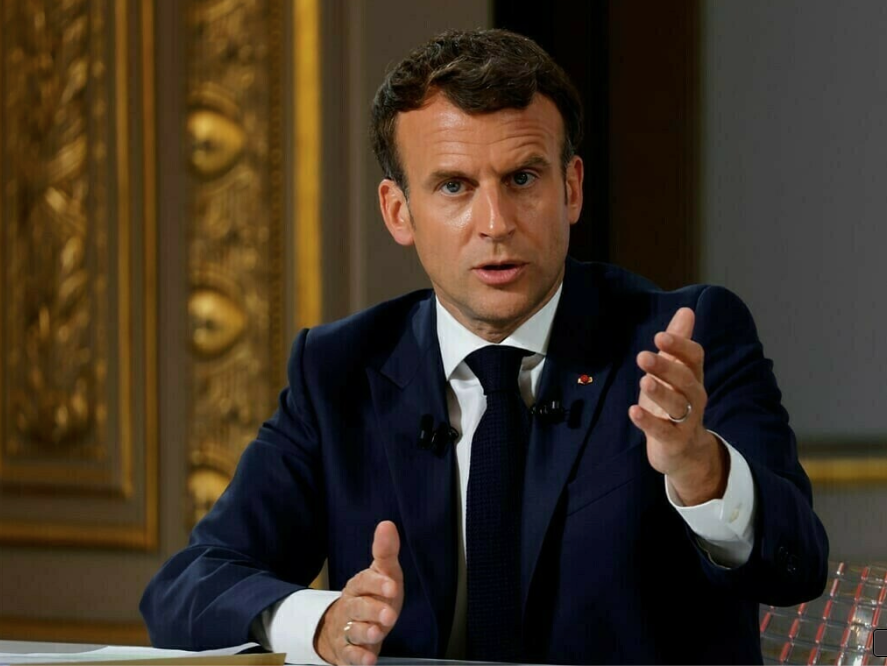|
Getting your Trinity Audio player ready...
|
In the wake of riots triggered by the fatal shooting of a 17-year-old named Nahel by French police, social media platforms such as TikTok and Snapchat are facing criticism for allegedly fueling the unrest. French President Emmanuel Macron has pointed fingers at these platforms, stating that they played a “considerable role” in encouraging copycat acts of violence and exacerbating tensions between the police and the younger population in the country.
On Thursday alone, authorities made 917 arrests, with over 300 police officers injured while attempting to quell the rioting. Macron, while also blaming video games for the violence, announced that the government would collaborate with social media sites to remove “sensitive content” and identify individuals who promote disorder or incite violence.
The concerns raised by the French government stem from instances where personal information, such as the name and address of the police officer involved in the shooting, was shared on social media, posing a potential risk to the officer and their family.
Talks have already begun between the government and platforms like Snapchat and Twitter to expedite the removal of content inciting violence. Additionally, efforts are being made to identify those who make calls for violence, although it is still in the discussion stage.
Interior Minister Gerald Darmanin emphasized the need for social networks to prevent themselves from being used as channels for promoting violence, and while he described their initial cooperation as “very cooperative,” he expressed the need to assess their actions moving forward.
Snapchat responded to the accusations, stating that they have increased moderation efforts to detect and take action against content related to the riots. They maintain a zero-tolerance policy for content promoting hatred or violent behavior, although fact-based reporting on the situation is allowed.
Other platforms, including TikTok and Meta (which owns Facebook and Instagram), have not provided immediate comments on the matter. Twitter, under Elon Musk’s ownership, responded with an automated reply in the form of a poop emoji, which has become a customary response in recent months.
The French government intends to provide social media companies with relevant information to identify individuals inciting violence and has expressed its commitment to pursuing legal action against anyone using these platforms to commit violent acts. It remains to be seen whether social media companies will take effective measures to address the concerns and abide by the law.
As the discussions between the government and social media platforms progress, the focus remains on striking a balance between freedom of expression and preventing the misuse of these platforms to incite violence or endanger lives.
The ongoing debate surrounding freedom of expression and the prevention of platform misuse to incite violence or endanger lives highlights the challenges faced by social media companies. While they play a significant role in facilitating communication and information sharing, they also bear the responsibility of maintaining a safe and inclusive online environment.
Social media platforms have implemented various measures to combat the spread of harmful content, including hate speech, incitement to violence, and misinformation. However, striking the right balance between allowing free expression and curbing dangerous activities remains a complex task. The recent events in France underscore the need for continuous evaluation and improvement of content moderation practices.
Critics argue that social media companies should take a more proactive stance in detecting and removing potentially harmful content, as well as identifying and holding accountable individuals who incite violence. These platforms have the power to shape public opinion and influence social dynamics, making it crucial for them to exercise their authority responsibly.
On the other hand, proponents of free speech emphasize the importance of protecting individuals’ rights to express themselves, even if their views may be controversial or unpopular. They caution against over-policing and censorship, which could stifle legitimate discourse and impede the democratic exchange of ideas.
Finding common ground requires collaboration between governments, social media companies, and civil society. Governments must establish clear legal frameworks that define the boundaries of acceptable online behavior, while social media companies must invest in robust content moderation systems and user reporting mechanisms. Additionally, public awareness and digital literacy campaigns can help users navigate the complexities of online discourse and identify potential risks associated with viral content.
Ultimately, addressing the challenges posed by social media in relation to violence and misinformation requires a multifaceted approach. It necessitates ongoing dialogue, technological advancements, and collective responsibility to strike the right balance between freedom of expression and the protection of individuals and society at large. As discussions continue and policies evolve, the role of social media in shaping public discourse will remain a topic of critical importance in the digital age.
